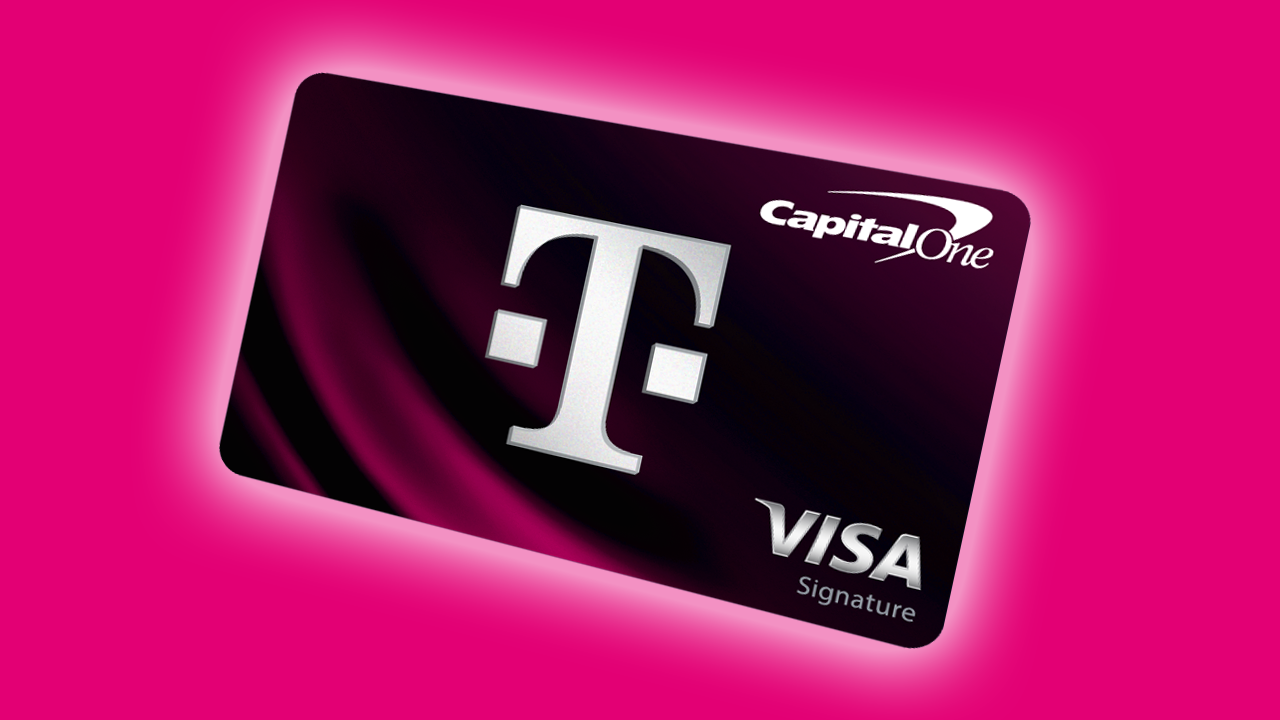Securing a commercial property loan is a pivotal step for any business looking to invest in real estate. These loans provide the capital to purchase, develop, or renovate commercial properties, which can be essential for expanding your business operations, increasing revenue, and building long-term wealth.
This guide provides a detailed walkthrough of the loan acquisition process, from preparation and application to approval and closing. It will highlight how to evaluate loan options, prepare the necessary documentation, negotiate terms, simplify the complex financial landscape and empower business owners to make informed decisions.
In this article:
Understanding Commercial Property Loans
Commercial real estate financing is designed to help businesses acquire, develop, or refinance commercial real estate. These loans can cover various types of properties, including office buildings, retail spaces, warehouses, and multifamily housing. Unlike residential loans, commercial property loans typically have more stringent borrower qualifications and higher interest rates due to the increased risk involved.
Types of Commercial Property Loans
Like residential mortgages, commercial real estate financing comes in different varieties. There are four main types of commercial property loans:
Traditional Commercial Mortgages
Traditional commercial mortgages are loans offered by banks and other financial institutions to buy commercial real estate. These loans can be either fixed-rate or adjustable-rate.
A fixed-rate mortgage has a stable interest rate throughout the loan term, providing predictable monthly payments. In contrast, an adjustable-rate mortgage (ARM) starts with a lower interest rate that can change periodically based on market conditions.
Traditional commercial mortgages are typically used for purchasing office buildings, retail spaces, warehouses, or multifamily housing properties. The terms and conditions of traditional commercial mortgages vary, but they generally require a substantial down payment (often 20% to 30%) and a strong credit history.
SBA Loans
Small Business Administration (SBA) loans are government-backed loans designed to support small businesses. There are two common types of SBA loans that can be used to purchase commercial property: the SBA 7(a) and the SBA 504 loan.
The SBA 7(a) loan is versatile and can be used for various purposes, including real estate purchases, renovation, and working capital. The SBA 504 loan is specifically for purchasing fixed assets like real estate and equipment.
These loans offer favorable terms, such as lower down payments, longer repayment periods, and competitive interest rates. However, they have strict eligibility criteria and require extensive documentation.
Related: Can You Get a Small Business Loan for Real Estate?
Bridge Loans
Bridge loans are short-term loans intended to provide immediate financing while the borrower secures long-term funding. These loans “bridge” the gap between the need for quick capital and the availability of permanent financing. Bridge loans typically have higher interest rates and shorter repayment terms (usually six months to three years) compared to traditional mortgages.
They are often used by businesses looking to quickly purchase a property, complete renovations, or take advantage of a time-sensitive opportunity. Due to their temporary nature and high costs, bridge loans are best suited for borrowers who have a clear plan for securing long-term financing soon.
Hard Money Loans
Hard money loans are short-term, high-interest loans provided by private lenders rather than traditional banks. These loans are typically used by real estate investors who need quick access to funds for property purchases, renovations, or other investments. Hard money loans are secured by the property itself, making them easier to obtain for borrowers with less-than-perfect credit.
However, they come with higher interest rates (often 10-15%) and shorter repayment terms (usually one to three years). Because of their high costs, hard money loans are generally considered a last resort or a tool for experienced investors who need fast financing and can handle the high interest and quick repayment schedule.
Eligibility Criteria
Eligibility for a commercial property loan varies by lender but generally includes the following:
- Credit Score: A strong credit score is crucial. Most lenders require a minimum score of 650, but higher scores can secure better terms.
- Business History: Lenders prefer businesses with a proven track record, typically at least two years of operation.
- Debt-Service Coverage Ratio (DSCR): This is a measure of your ability to service debt. Most lenders require a DSCR of at least 1.25.
- Down Payment: This upfront cash payment is typically 20-30% of the property’s purchase price, but some loans (like government-backed options) may offer lower down payments.
How to Assess Your Eligibility
Determining your eligibility for a commercial property loan involves a thorough review of key financial indicators and making any necessary improvements to strengthen your application. Here’s a step-by-step guide to help you evaluate and enhance your eligibility:
Review Your Credit Score
Start by obtaining your credit report and reviewing your credit score. A higher credit score increases your chances of securing a loan with favorable terms. Aim for a score of 680 or higher, but note that some lenders may require a score of 700 or above for commercial loans. If your score is lower, take steps to improve it, such as paying down existing debt, correcting any errors on your credit report, and avoiding new credit inquiries.
Analyze Your Business Financials
Gather your business’s financial statements, including income statements, balance sheets, and cash flow statements. Lenders will scrutinize these documents to assess your business’s financial health. Ensure your financials show a stable income, healthy cash flow, and a manageable level of debt. If there are any weaknesses, such as inconsistent revenue or high expenses, work on stabilizing and improving these areas.
Evaluate Your Debt Service Coverage Ratio (DSCR)
The DSCR is a key metric used by lenders to determine your ability to repay the loan. It is calculated by dividing your business’s annual net operating income by the annual debt obligations. A DSCR of 1.25 or higher is generally considered strong, indicating that your business generates enough income to cover its debt payments comfortably. If your DSCR is below this threshold, focus on increasing your net operating income or reducing debt.
Use our Debt Service Credit Ratio Calculator to help estimate your DSCR.
Address Areas that Need Improvement
If your credit score, financials, or DSCR fall short of lender requirements, take proactive steps to address these issues. This might include implementing cost-cutting measures to improve cash flow, restructuring existing debt, or increasing your business’s revenue through strategic initiatives. Improving these metrics will not only enhance your eligibility but also position your business for long-term success.
Ensure a Solid Financial Foundation
Beyond just meeting the minimum requirements, strive to demonstrate a strong financial foundation. This includes maintaining a healthy cash reserve, having a diversified revenue stream, and showing a history of profitability. Lenders prefer businesses that are financially stable and have a low risk of default.
Develop a Clear Loan Utilization Plan
Prepare a detailed plan for how you intend to use the loan funds to generate revenue and grow your business. This plan should include projections for increased income, cost savings, or other financial benefits resulting from the loan. A well-thought-out plan demonstrates to lenders that you have a strategic approach to using the funds effectively.
Tips Before You Apply
Before applying for a commercial property loan, it’s essential to prepare thoroughly. Doing so will save you time and increase your odds of getting approved for favorable loan terms and conditions. Follow these tips to get started, and consider consulting a financial advisor for more specific advice for your unique situation.
- Assess Your Financial Health: Evaluate your business’s financial statements, including income statements, balance sheets, and cash flow statements. Ensure they accurately reflect your financial health and are up to date.
- Draft a Strong Business Plan: A well-developed business plan outlines your business’s goals, strategies, and how the loan will help achieve them. This plan should include detailed financial projections to demonstrate your ability to repay the loan.
- Improve Your Credit Score: Pay off existing debts, ensure timely bill payments, and correct any errors on your credit report. Improving your credit score can help you secure better loan terms.
Choosing the Right Commercial Property
The type of property you choose can significantly impact your loan terms and overall investment success. Properties in prime locations tend to appreciate more and attract higher rental incomes. Older properties may require more maintenance, impacting your cash flow.
Perhaps most crucially, market trends will TKTK
Different property types have varying risk profiles. For example, retail spaces might have higher risks than office buildings, affecting the interest rate and loan-to-value ratio you can secure.
Related: 9 Reasons Small Businesses Should Invest in Commercial Property
Finding the Right Lender
Whenever you’re considering a financial product, it’s important to shop around lenders to find the one that is best suited for your unique situation. First and foremost, ensure they have commercial real estate lending experience. Ask if they’ve worked with other small businesses in the area and research the lender’s reputation, reviews, and customer service offerings.
You’ll also want to weigh their offered interest rates, loan terms, and fees. These can vary greatly between lenders and lender types.
The variety of lender you work with can also have a large impact on your borrowing experience. Here are some factors to consider:
Pros and Cons of Different Lender Types
| Type of Lender | Pros | Cons |
|---|---|---|
| Traditional banks | Competitive rates and lots of experience with CRE loans | Stringent requirements and longer approval process |
| Credit Unions | Lower rates and fees, experience serving SMB customers | Limited geographic reach |
| Online lenders | Quicker approval process and flexible terms | Can carry higher rates and fees |
| Specialized Commercial Lenders | Tailored products to CRE and higher loan amounts | Strict requirements and limited accessibility |
The Application Process
Before applying, you’ll need to gather necessary paperwork, like your business financial statements, tax returns, business plan, and details about the property you intend to purchase.
Once you’ve collected the necessary documentation, applying for your loan will typically involve these key steps:
- Pre-Qualification: Provide basic information to get an estimate of loan terms.
- Submission of Application: Submit a detailed application with all required documentation.
- Loan Underwriting: The lender reviews your financials, business plan, and the property details.
- Approval and Commitment: If approved, you’ll receive a commitment letter outlining the loan terms.
- Closing: Sign the final documents and pay any closing costs.
Common Mistakes to Avoid in the Application
When applying for a commercial real estate (CRE) loan, it’s vital to avoid these common mistakes that could impact your application’s success and loan terms.
- Incomplete Documentation: Ensure your documentation is complete and accurate to prevent delays or rejection.
- Inaccurate Forecasts: Provide realistic revenue projections as exaggerated forecasts can undermine credibility with lenders.
- Misunderstandings: Meticulously review all loan terms and conditions to understand factors like interest rates, repayment schedules, and fees.
Taking these steps will help you navigate the CRE loan application process smoothly and make informed decisions that align with your financial goals.
How to Negotiate Favorable Loan Terms
Negotiating favorable terms on a commercial real estate (CRE) loan as a small business owner requires preparation, understanding of the market, and effective communication with lenders.
Here are some key strategies:
- Seek Professional Advice: Consult with a financial advisor or mortgage broker who specializes in commercial real estate. They can provide insights into current market conditions and negotiate on your behalf.
- Consider Loan Terms: While cost is important, it’s not the only item to negotiate in your CRE Loan. Discuss flexible repayment schedules, loan term lengths, and any prepayment penalties. Align these terms with your business’s cash flow and long-term financial goals.
- Offer Collateral or Guarantees: Providing additional collateral or personal guarantees can mitigate lender risk and potentially lead to more favorable loan terms.
- Highlight Your Experience: Emphasize your experience in managing similar properties or operating within the industry. Lenders value experienced borrowers who are likely to succeed in their investments.
- Build a Relationship: Establishing a positive relationship with your lender can enhance trust and lead to more favorable terms. Communicate openly and professionally throughout the negotiation process.
- Be Prepared to Walk Away: If terms are not favorable, don’t hesitate to explore other options or delay the decision until you find terms that better suit your needs.
Closing the Loan
Closing on a commercial property involves several key steps that finalize the purchase or loan. First, you’ll review all the paperwork carefully. This includes the loan agreement and legal documents that outline the terms of your purchase or financing. It’s crucial to ensure everything matches what you agreed upon during negotiations. Take your time to understand each document fully before moving forward.
Once you’re satisfied with the paperwork, you’ll proceed to sign the necessary documents. This step formalizes your agreement and makes the property purchase or loan official. Be prepared to sign multiple papers, and don’t hesitate to ask questions if anything is unclear.
Alongside signing, you’ll need to pay the closing costs. These fees typically include loan origination fees, appraisal costs to assess the property’s value, and legal fees for document preparation and review. Budgeting for these expenses at the beginning of your search for a property in advance helps ensure a smooth closing process.
After signing the documents and paying the fees, ownership of the commercial property officially transfers to you. This means you gain all rights and responsibilities associated with owning or financing the property.
Moving forward, you’ll need to manage the property effectively, making timely loan payments if applicable and maintaining the property’s upkeep. Keeping open lines of communication with your lender is essential for addressing any post-closing questions or issues promptly. This structured approach to closing ensures you navigate the process confidently and successfully as a small business owner.
Conclusion
Securing a commercial property loan is a complex process, but with thorough preparation and understanding, it can be a smooth and successful endeavor. By evaluating your options, preparing your documents, and choosing the right lender, you can secure the financing you need to achieve your business goals.
FAQs
What are the main types of commercial property loans?
The main types include traditional commercial mortgages, SBA loans, bridge loans, and hard money loans.
What do lenders look for when approving a commercial property loan?
Lenders will evaluate a borrower’s financial health by analyzing their credit score, business history, DSCR, and down payment capability.
How can I improve my chances of getting a commercial property loan approved?
Maintain a strong credit score, have a solid business plan, and ensure your financial statements are accurate and up to date.
Are there any specific challenges in securing loans for commercial properties compared to residential properties?
Yes, commercial property loans typically have higher interest rates, more stringent borrower requirements, and a more complex approval process compared to residential loans.
Learn about the Biz2Credit financing process
Publisher: Source link











